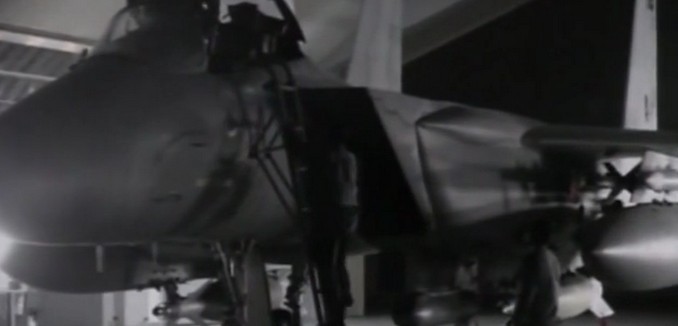Tensions between Arab states and Iran, which erupted into a hot war overnight in Yemen with a Saudi-led military offensive against the Iranian-backed Houthi militants, are hanging over the ongoing negotiations between the P5+1 nations and Tehran in Lausanne, Switzerland. The talks, which revolve around Iran’s nuclear program, are expected to reach a conclusion either this weekend or early next week. Arab states have expressed broad frustration with what they view as overly generous Western concessions to Iran, which they believe are putting Iran on a glide path to a nuclear weapon that will boost Tehran’s drive for regional supremacy.
The Saudis have reportedly amassed 150,000 troops and 100 warplanes for the operation. Warplanes from the United Arab Emirates, Qatar, Bahrain, Kuwait, Jordan, Morocco and Sudan were also reported to be taking part in the Saudi-led coalition. Pakistan and Egypt, as well as Jordan, have also confirmed their participation in the campaign. Egyptian military and security officials have announced that Egypt and Saudi Arabia will lead a ground offensive after first weakening the Houthis through air strikes. The countries of the Gulf Cooperation Council (GCC), with the exception of Oman, issued a statement Thursday, reading in part: “[O]ur nations have decided to respond to the request of President Abed Rabbo Mansour Hadi of the Republic of Yemen to protect Yemen and its dear people from Houthi militias’ aggression, which was and is still a tool in the hands of foreign powers that did not stop tampering with the security and stability of brotherly Yemen.”
Meanwhile, actors in the Iranian camp – which are currently in open conflict with Sunni Arab-backed forces in Lebanon, Syria, Iraq, and Yemen – including Iranian Foreign Minister Mohammad Javad Zarif, who is in Lausanne, Switzerland for talks on the Iran nuclear agreement, called for an immediate cessation of the operation.
Iranian state media denounced what it called “U.S.-backed aggression.” Alaeddin Boroujerdi, Chairman of the National Security and Foreign Policy Committee of the Iranian Parliament, was quoted as saying, “The fact that Saudi Arabia has waged a new war in the region attests to its disregard and irresponsibility towards issues in the Muslim world. The outcomes of this crisis will boomerang on Saudi Arabia as war is not confined to the borders of one particular region.”
Syria’s state-run news agency, SANA, condemned the campaign as “blatant aggression.” Iraq’s foreign minister made a statement opposing the Saudi-led strikes, saying he prefers a “peaceful” resolution. Hezbollah likewise condemned the campaign, calling the “U.S.-Saudi aggression” an “unwise and illegal adventure [that] increases tensions and risks in the region.” A Houthi official threatened revenge against what he called the “Zionist Saudi regime” and vowed that there would be no pilgrimage to Mecca this year.
The Iranian-backed Houthis seized Yemen’s capital Sanaa last year and forced the resignation of President Hadi, a firm U.S. counter-terrorism ally, and his entire government in January. At that time, Iranian Brigadier General Baqir Zada boasted that this was a “historic victory for the Iranian Islamic revolution.” Ali Reza Zakani, a member of the Iranian parliament who is close to Supreme Leader Ayatollah Ali Khamenei, said that Sanaa is the fourth Arab capital to join the Iranian Revolution (after Beirut, Damascus, and Baghdad). Hadi fled to the southern Yemeni city of Aden and declared it the country’s capital earlier this month. The Houthis and allied army units launched an assault toward Aden on Wednesday, precipitating Operation “Decisive Storm,” as the Saudi-led offensive against the Houthi is called.
The recent chaos in Yemen and collapse of the government, resulting in Thursday’s Saudi-led military campaign against an Iranian proxy, has been linked by some analysts to a shift of American foreign policy in favor of Iran that has increasingly alienated the U.S.’s traditional Sunni Arab allies. Avi Issacharoff of The Times of Israel writes that the anger of the Saudis, Jordanians, and Egyptians “is not directed at Iran, which is more or less engaged in the kind of hostile activity expected of it, but mainly at Washington.”




